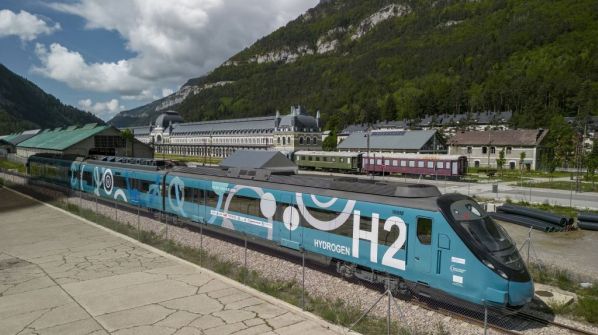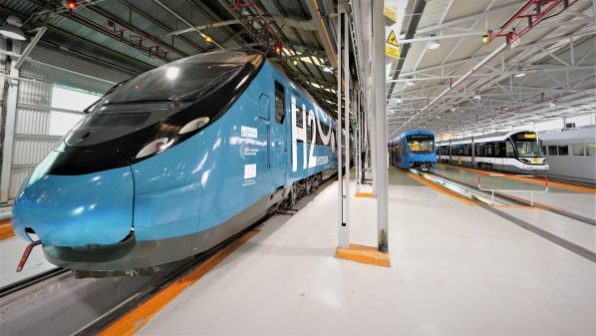THE FCH2RAIL consortium has begun its second test run of its new prototype hydrogen-electric train, this time on the high-altitude line between Torralba and Soria in the Spanish region of Castilla y León.
The consortium successfully trialled its prototype along the steep incline between Zaragoza (elevation 243m above sea level) and the Pyrenean village of Canfranc (1195m) last May. However, this second trial will be performed entirely at altitudes between 1079m and 1061m along a 94km section of line, in order to test the train’s performance further and simulate different commercial services, according to Spanish infrastructure manager Adif.
The prototype, a retrofitted class 463 Civia EMU from the Spanish manufacturer CAF and provided by the state operator Renfe, runs on hydrogen fuel cells and batteries, producing electricity from the electrolysis of onboard hydrogen and oxygen drawn from the air, with water as its only by-product. It is also able to draw current from overhead power lines.
Apart from Adif, CAF, and Renfe, the FCH2RAIL consortium also consists of the German Aerospace Centre (DLR), Toyota, CNH2, Infrastructure Portugal (IP), and Stemmann-Technik. The €14m project is mainly funded by the European Commission agency Clean Hydrogen Partnership (formerly FCH2 JU) and is planned to run until next year.


